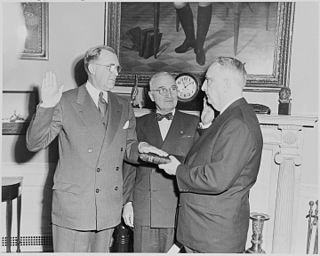A Quote by Dale Carnegie
Tell a child, a husband or an employee that he is stupid or dumb at a certain thing, that he has no gift for it, and that he is doing it all wrong and you have destroyed almost every incentive to try to improve. But use the opposite technique, be liberal with encouragement; make the thing seem easy to do, let the other person know that you have faith in his ability to do it, that he has an undeveloped flair for it - and he will practice until the dawn comes in at the window in order to excel.
Related Quotes
Don’t do what you know on a gut level to be the wrong thing to doI don’t think there’s a single dumbass thing I’ve done in my adult life that I didn’t know was a dumbass thing to do while I was doing it. Even when I justified it to myself—as I did every damn time—the truest part of me knew I was doing the wrong thing. Always. As the years pass, I’m learning how to better trust my gut and not do the wrong thing, but every so often I get a harsh reminder that I’ve still got work to do.
Do not be deceived by the way men of bad faith misuse words and names … Things are set up as contraries that are not even in the same category. Listen to me: the opposite of radical is superficial, the opposite of liberal is stingy; the opposite of conservative is destructive. Thus I will describe myself as a radical conservative liberal; but certain of the tainted red fish will swear that there can be no such fish as that. Beware of those who use words to mean their opposites. At the same time have pity on them, for usually this trick is their only stock in trade.
The essence of justice is mercy. Making a child suffer for wrong-doing is merciful to the child. There is no mercy in letting the child have its own will, plunging headlong to destruction with the bits in its mouth. There is no mercy to society nor to the criminal if the wrong is not repressed and the right vindicated. We injure the culprit who comes up to take his proper doom at the bar of justice, if we do not make him feel that he has done a wrong thing. We may deliver his body from the prison, but not at the expense of justice nor to his own injury.
It doesn't take a brilliant mind to notice that adults are telling you what to do and then they do the opposite. I mean, I can't recall every stupid thing that adults were doing when I was six or seven. Some of it was the religious restrictions, where there were certain things that you were allowed to do and certain things that you weren't allowed to do, and I couldn't make sense of those things.
If they learn easily, they are penalized for being bored when they have nothing to do; if they excel in some outstanding way, they are penalized as being conspicuously better than the peer group. The culture tries to make the child with a gift into a one-sided person, to penalize him at every turn, to cause him trouble in making friends and to create conditions conducive to the development of a neurosis. Neither teachers, the parents of other children, nor the child peers will tolerate a Wunderkind.
If the ability to tell right from wrong should turn out to have anything to do with the ability to think, then we must be able to "demand" its exercise from every sane person, no matter how erudite or ignorant, intelligent or stupid, he may happen to be. Kant in this respect almost alone among the philosophers was much bothered by the common opinion that philosophy is only for the few, precisely because of its moral implications.
The time is a thing; you don't have so much time. A good trick is to try and think about a way to use material from one occupation for the other. It's like going through working a day job, this is so dumb to say, but you know how Julian Schnabel made those crockery paintings while he was working as a short-order cook? It's like that, using what is around, transforming that to create meaning and make art. Trying to take nothing and make... something.
In Sliding Doors, the whole idea is that every choice you make, and every single thing that happens to you changes the trajectory of your life, and once you are put on that trajectory, there is no way back. But Groundhog Day - which, I tell him, also happens to be a much better movie - says the opposite. It says if you mess up or make the wrong choice, you just have to keep at it until you do it right.
There are two ways of dealing with being odd. One is to really try and conform, and the other is to do the opposite and really make a thing out of it. At school, it wasn't that I was bullied, but everyone was very aware that I was different. I was kind of the token weird person that people accepted into their group, almost like an accessory.





































